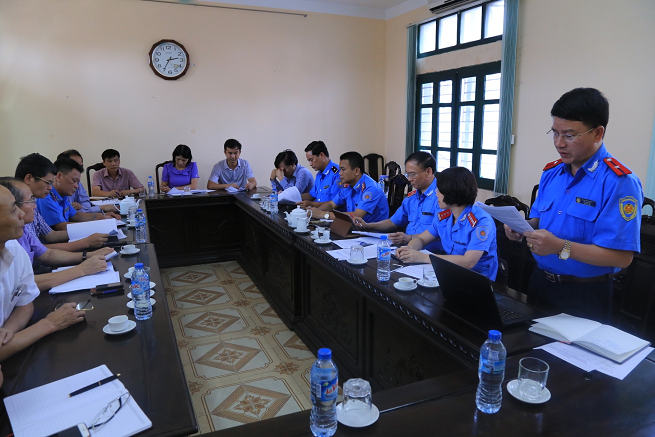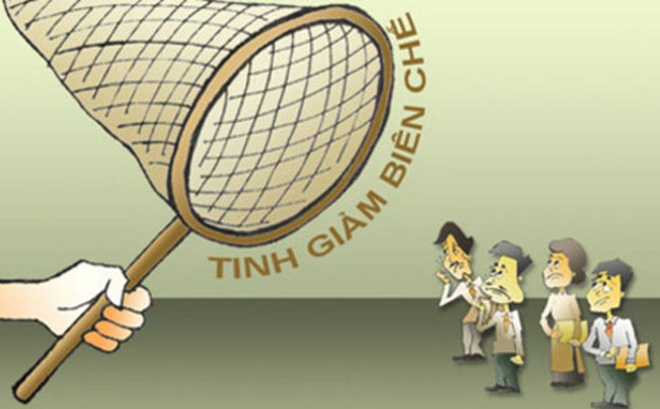Draft Law amending and supplementing a number of articles of the Law on officials and the Law on Public Employees is expected to take effect from January 1, 2020. There are many new proposals directly impacting all officials and public employees, which are also expected to be applied from 2020.
1. From January 01, 2020, there will be no quota control for officials
To be specific, according to the provisions of Clause 1, Article 34 of the Officials Law 2008, currently, officials are classified into 04 categories according to their respective ranks as follows: Senior specialists or equivalent; principal specialists or equivalent; specialists or equivalent; officers or equivalent and employees.
However, according to Clause 4, Article 1 of the Draft which amends and supplements this content in the Officials Law 2008, from January 01, 2020, there will no longer be quota control for officials as currently regulated, but based on the field of industry, profession, and professional expertise, officials will be classified according to their respective ranks. The ranks, hierarchy of each rank associated with the job position and salary will be detailed by the Government of Vietnam.
2. Eliminate policies for officials in public service providers
To be specific, according to the provisions of Clause 1, Article 1 of the Draft, amending and supplementing Clause 2, Article 4 of the Officials Law 2008 on the definition of officials, officials do not include those in the leadership and management apparatus of public service providers of the Communist Party of Vietnam, the State, or socio-political organizations as currently regulated in the Officials Law 2008.
Thus, if this provision in the Draft is passed, from January 01, 2020, there will no longer be policies for officials in public service providers as currently.
3. Add additional forms of rank promotion for officials
To be specific, according to the provisions of Clause 8, Article 44 of the Draft, amending and supplementing Article 44 of the Officials Law 2008, rank promotion must be based on the job position, appropriate to the rank structure of the agency, organization, unit, and conducted through rank promotion exams or rank promotion assessments.
Thus, the Draft has added the form of rank promotion assessment alongside the form of rank promotion exams compared to the current provisions of the Officials Law 2008.
4. Officials promoted in rank will be assigned to positions corresponding to the higher rank
To be specific, according to this Draft, from January 01, 2020, officials who meet the standards and conditions to take on job positions corresponding to the higher rank will be eligible to register for exams or rank promotion assessments.
Officials who pass the rank promotion exam or assessment will be appointed to a higher rank and assigned to corresponding job positions.
5. Public employees received into official roles must meet certain conditions
To be specific, according to Clause 5, Article 1 of the Draft, amending and supplementing Article 37 of the Officials Law 2008, public employees working in public service providers can be received into official roles by the head of the official management agency without passing exams or assessments.
However, according to this Draft, individuals received into official roles must meet all the requirements of the job position. To be specific, public employees when received must ensure at least 05 years of service, excluding probationary time, in positions that require university-level training or higher suitable to the requirements of the job position to be recruited and must have compulsory social insurance contributions. If the service period with compulsory social insurance contributions is not continuous and they have not received a one-time social insurance allowance, it will be aggregated.
6. Change in regulations on resignation policies for public employees
To be specific, according to Clause 5, Article 2 of the Draft, amending and supplementing Clause 1, Article 45 of the Public Employees Law 2010, public employees are entitled to resignation allowances, job loss allowances, or unemployment insurance benefits according to the provisions of labor law and social insurance law when the public service provider unilaterally terminates the working contract with the public employee, except in the following cases:
- Dismissal;- Unilateral termination of the working contract in violation of Clauses 4, 5, and 6 of Article 29 of the Public Employees Law 2010;- Termination of the working contract according to Clause 5 of Article 28 of the Public Employees Law 2010.
Thus, the Draft has clearly stipulated resignation policies for public employees when the public service provider unilaterally terminates the working contract instead of the current general regulation of policies for public employees when the working contract is terminated.
7. Public employees under disciplinary review are still eligible for retirement policies
To be specific, according to the provisions of Clause 7, Article 2 of the Draft, amending and supplementing Clauses 2 and 3 of Article 56 of the Public Employees Law 2010, public employees disciplined from reprimand to dismissal will not be planned, trained, fostered, or appointed to higher positions within 12 months from the effective date of the disciplinary decision, meaning they can still be reappointed or assigned to lower positions. (current regulations do not mention non-appointment to higher positions).
At the same time, according to this Draft, public employees under disciplinary review, under investigation, prosecution, or trial are not subject to appointment, secondment, training, fostering, or resignation. This means that retirement policies will still be resolved for public employees under disciplinary review. (under current regulations, retirement is not resolved for these subjects).
8. Officials and public employees can still be disciplined after resignation or retirement
To be specific, according to Clause 16, Article 1 of the Draft, amending and supplementing Article 84 of the Officials Law 2008, officials and public employees after resignation or retirement, if violations are discovered during their service, must endure one of the following disciplinary forms depending on the nature and severity of the violation:
1. Reprimand.
2. Warning.
3. Deletion of the title held at the time of the violation.
Thus, if this content in the Draft is passed, from January 01, 2020, officials and public employees who have previous violations will still be disciplined according to one of the above three forms even if they have retired or resigned.
9. No statute of limitations for disciplining officials in certain cases
According to the provisions of Clause 1, Article 80 of the Officials Law 2008, the statute of limitations for disciplining officials is determined to be 24 months from the date of the violation. However, the Draft has extended this statute of limitations to 60 months from the date of the violation.
The Draft also stipulates that no statute of limitations applies for disciplining in certain extremely serious violations such as:
- Officials and public employees who are party members with violations subject to expulsion;
- Violations in internal political protection affairs;
- Violations that harm national interests in defense, security, and foreign affairs;
- Use of fake, illegitimate diplomas, certificates, confirmations.
Thus, officials will not be subjected to the statute of limitations for disciplinary action and can be considered for disciplinary action at any time if found to have committed one of the extremely serious violations mentioned above.
Nguyen Trinh
 Article table of contents
Article table of contents
![[InfoGraphic] 6 forms of discipline for officials and public employees under Decree 71/2016/ND-CP](https://cdn.lawnet.vn//uploads/NewsThumbnail/2016/07/12/1319291-01.png)




.Medium.png)
.Medium.png)
.Medium.png)
.Medium.png)
